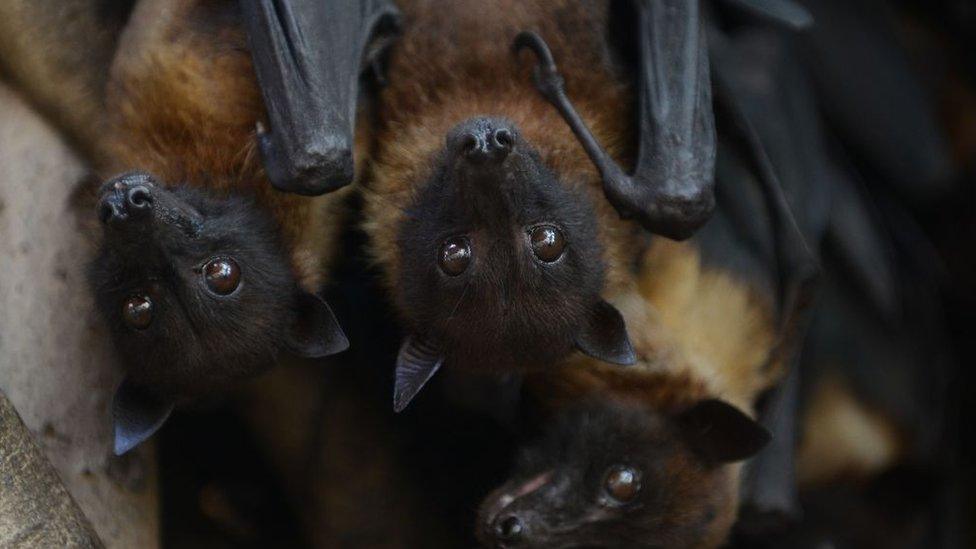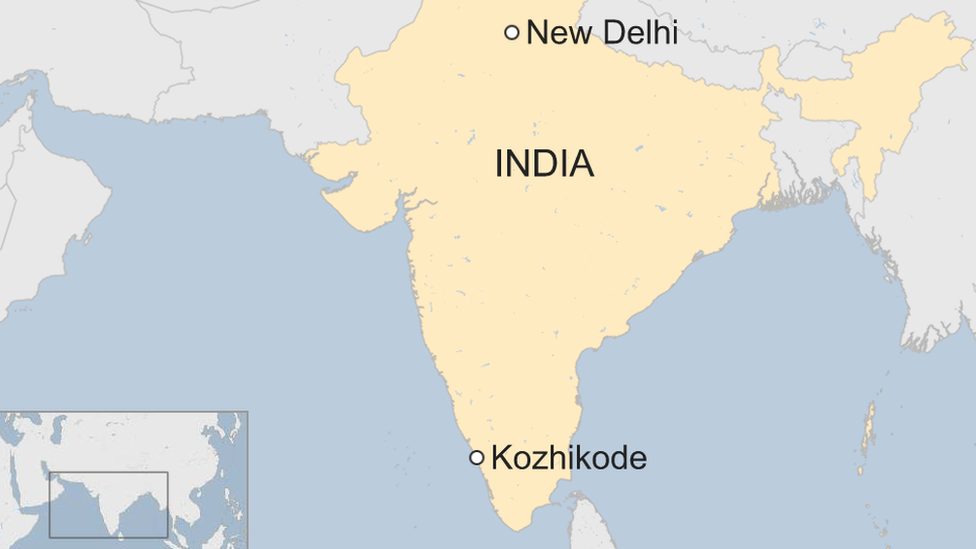Deadly Nipah virus claims victims in India
- Published

Bats are the virus's natural host
Health officials in the south Indian state of Kerala say nine people have died in confirmed and suspected cases of the deadly Nipah virus.
Three victims have tested positive for the virus in the past fortnight. The results from the remaining six samples will be available later on Monday.
Twenty-five others have been hospitalised with symptoms of the infection in Kozhikode, officials said.
Nipah is an infection which can be transmitted to humans from animals.
There is no vaccination for the virus which has a mortality rate of 70%.
Nipah virus is also "top of the list" of 10 priority diseases that the WHO has identified as potentials for the next major outbreak.
Kerala's health secretary Rajeev Sadanandan told the BBC that a nurse who treated the patients had also died.
"We have sent blood and body fluid samples of all suspected cases for confirmation to National Institute of Virology in Pune. So far, we got confirmation that three deaths were because of Nipah," he said.
"We are now concentrating on precautions to prevent the spread of the disease since the treatment is limited to supportive care."

Fruit bats are considered to be the natural host of the virus.
Health officials said they had found mangoes bitten by bats in a home where three people died of the suspected infection.

What is Nipah virus?
Nipah virus (NiV) infection is a newly emerging disease which can be transmitted to humans from animals. The natural host of the virus are fruit bats
The infection was first identified in 1999 during an outbreak of encephalitis and respiratory illness among pig farmers and people with close contact with pigs in Malaysia and Singapore
Nearly 300 human cases with over 100 deaths were reported in that outbreak. In order to stop it, more than a million pigs were euthanized, causing tremendous trade loss for Malaysia
Nipah virus infection can be prevented by avoiding exposure to sick pigs and bats in endemic areas and not drinking raw date palm sap
Symptom of the infection include fever, headache, drowsiness, respiratory illness, disorientation and mental confusion. These signs and symptoms can progress to coma within 24-48 hours
There is no vaccine for either humans or animals
(Source: WHO, Centers for Disease Control and Prevention)
